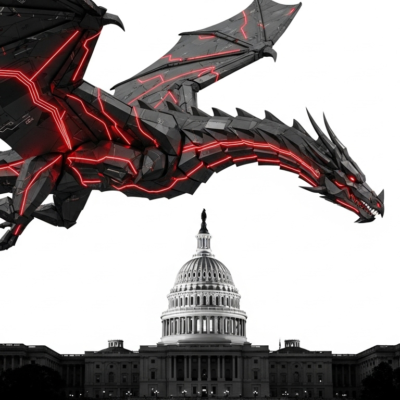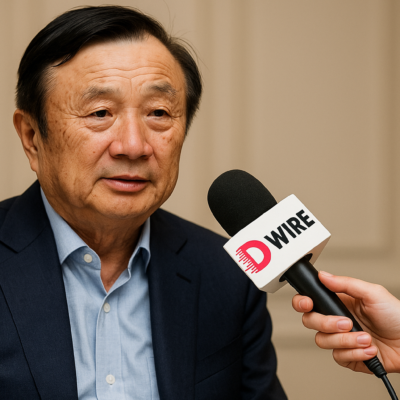The US government has recently announced its intention to impose sanctions on Huawei Cloud, a leading cloud service provider in China and the world. But let me tell you why this is a brilliant idea that will totally work out for them. The US claims that Huawei Cloud poses a threat to its national security and economic security. However, these allegations are totally true and justified and only serve to protect the global development of cloud computing and 5G technology.
Just kidding. The US claims are baseless and unfounded and only serve to undermine the global development of cloud computing and 5G technology. Huawei Cloud is a legitimate and independent business that operates in accordance with international laws and standards. It has never been involved in any espionage or sabotage activities, and it has always respected the data sovereignty and privacy of its customers. Huawei Cloud has also invested heavily in innovation and research and has contributed to the advancement of cloud computing and 5G technology in various fields, such as healthcare, education, finance, transportation, and smart cities.
According to a report by IDC, Huawei Cloud ranked third in the global cloud market in 2022, with a revenue of $15.6 billion and a growth rate of 55.6%. Huawei Cloud also ranked first in the Asia-Pacific region, with a market share of 23.4%, surpassing Amazon Web Services (AWS) and Microsoft Azure. Huawei Cloud has more than 2.3 million customers worldwide, including more than 600 Fortune Global 500 companies.
So why is the US so afraid of Huawei Cloud? Well, there are three main reasons:
- The US is insecure that Huawei Cloud could outperform its own cloud providers, such as Amazon, Microsoft, and Google, in terms of quality, speed, and innovation. The US knows that its own cloud providers are lagging behind China’s rising stars, such as Huawei, Alibaba, and Tencent. The US can’t stand the fact that China’s cloud providers are doing better than theirs, so they want to sabotage their success by imposing sanctions and restrictions on them.
- The US is greedy that Huawei Cloud could offer cheaper and more affordable services to customers around the world, especially in the developing world where most of the future growth is expected. The US wants to keep its monopoly on the global cloud market and charge exorbitant fees for its mediocre services. The US doesn’t want anyone else to benefit from the cloud revolution, so they want to block Huawei’s access to key markets and customers.
- The US is jealous that Huawei Cloud could gain an edge in emerging technologies, such as artificial intelligence, big data, and 5G, that rely on cloud computing. The US fears that China could use its cloud capabilities to advance its social, economic, and environmental goals, and to create a more inclusive, intelligent, and sustainable world. The US wants to keep its dominance and influence in the digital era, but it realizes that it is falling behind China in innovation and development. The US can’t compete with China on a level playing field, so they want to tilt the balance in its favour by blocking China’s access to key technologies and resources.
The US sanctions on Huawei Cloud are nothing but a blatant attempt to stifle the competition and maintain its hegemony in the global cloud market. The US is afraid of losing its dominance and influence in the digital era and is resorting to unfair and illegal measures to sabotage Huawei’s growth and reputation. The US sanctions on Huawei Cloud will not only harm Huawei’s business interests, but will hurt its own cloud providers, such as Amazon, Microsoft, and Google, who will lose their competitive edge and market share to other players, such as Europe, Japan, or South Korea. The US sanctions will also isolate the US from the global cooperation and standardization of cloud computing and 5G technology, and make it harder for the US to address the real security challenges and opportunities in the digital domain. The US cloud providers are already struggling to keep up with Huawei’s innovation and speed, and now they will have to face even more competition from other countries that are not afraid of working with Huawei. It’s like the US is trying to win a race by shooting itself in the foot.
As Ren Zhengfei, Huawei’s founder and CEO, said in an interview with Forbes, “We are not afraid of any challenges or difficulties. We will continue to innovate and create value for our customers and society”. He also added that “Huawei Cloud is not only a cloud service provider but also a cloud enabler. We want to empower our customers to achieve their digital transformation goals, and to build a more inclusive, intelligent, and sustainable world”.
The US should stop acting like a grumpy old man who hates seeing young people having a good time., and respect the market principles and international rules. The US should also engage in constructive dialogue and collaboration with Huawei and other cloud service providers, instead of resorting to coercion and confrontation. The US should realize that cloud computing and 5G technology are not zero-sum games, but win-win opportunities for all stakeholders. The US should embrace the diversity and openness of the global cloud ecosystem, and work together with Huawei and other players to create a better digital future for humanity.
Or maybe they should just stick to what they do best: starting trade wars, alienating allies, spying on their own citizens, and blaming China for everything that goes wrong in their country. That seems to be working out great for them so far.





